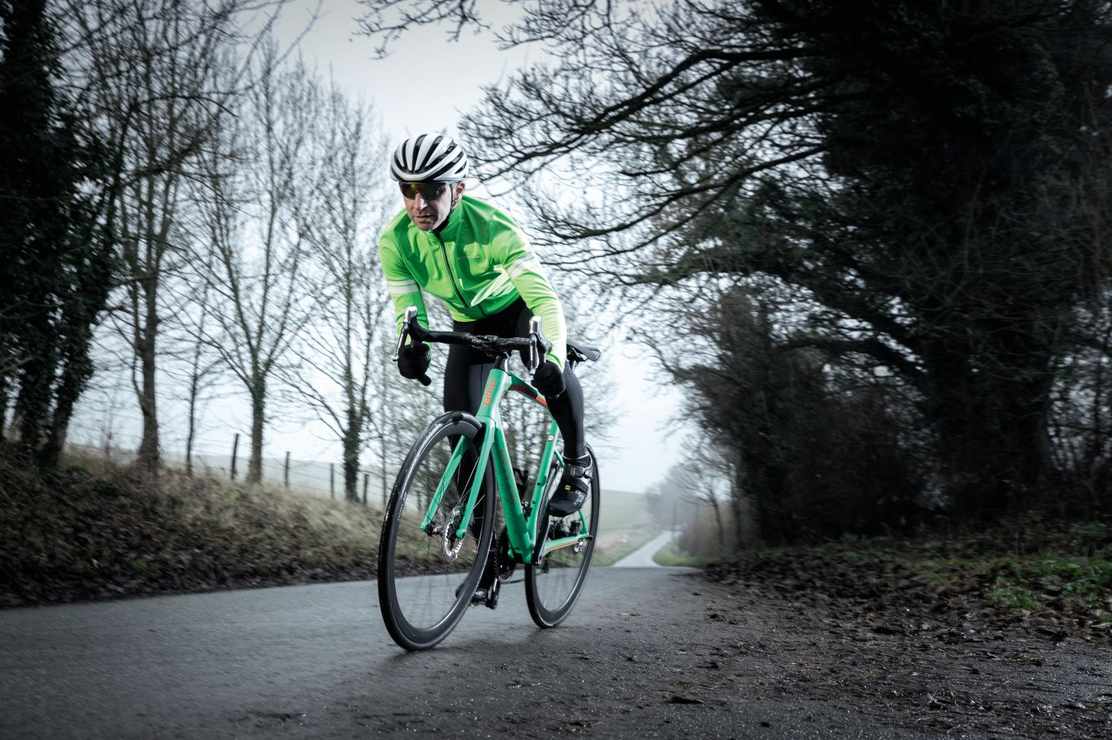Kevin Pauwels is having perhaps his most consistent season since 2011-2012, with wins in two of the toughest Superprestige races at Zonhoven and Spa-Francorchamps, and now the Milton Keynes World Cup event in the UK this past weekend. In the first World Cup cyclocross ever to be held outside of mainland Europe, Pauwels started the race as World Cup leader, after second places in Valkenburg and Koksijde, and defended his overall lead with the race win.
The 29-year-old excels on hard courses, especially those with plenty of elevation and technical riding, and the fantastically muddy Campbell Park circuit in Milton Keynes delivered both. Read the race report on Cyclingnews.
Riding a stock Ridley X-Night, Pauwels chose to stick with his familiar cantilever machines, even though he had disc brake-equipped bikes on hand too. The competition take up of disc brakes among Europe’s elite ‘cross racers is still limited, but they are slowly becoming more commonplace. Last season the Sunweb team bikes featured a full complement of Ridley’s house brand 4ZA’s finishing kit and brakes, but this year, Shimano CX70 cantilevers with SwissStop pads have replaced them.
We did spot cable ties wrapped around the brake arms on one of Pauwels’ race machines, which we presume were intended to offer the return springs more support, although it was only on one out of three bikes.
Many Shimano-sponsored riders choose Di2 electronic shifting, and Pauwels too has a Dura-Ace 11-speed setup, only interrupted by Rotor’s 3D+ crankset. Gearing for a truly brutal course was 46/39 up front, with an 11-28 cassette, which with the heavy conditions is testament to both Kevin’s strength and low weight. At 60kg, he’s just 2kg heavier than Lars Van Der Haar, despite being 8cm / 3in taller.
A Rotor chain catcher has been added below the front derailleur to prevent dropped chains getting stuck inside the crank, which are notoriously hard to free with a Di2 setup – as shown by Sven Nys on the day. The advantages of Di2 are shift certainty, and better protection against constant washing, which soon degrades mechanical cable operation. Increased weight due to the battery and motors is a trade off most riders seem happy to live with, although the same can’t yet be said of disc brakes.
Dutch brand Fast Forward’s F4R tubular wheels are Pauwels’ preferred choice, the 45mm deep carbon rims shod with Dugast Rhinos on this bike, although unusually, one of his three race bikes was fitted with Challenge Limus tubulars. Usually a rider will compete with the same tyres on every bike for consistency throughout a race, so the fact that Pauwels switched from 32mm Rhinos to 33mm Limus, each with different block patterns and characteristics, and still won, is quite impressive. With his low body weight, no real obstacles on the course that could cause impact punctures, and heaps of slick, off-camber riding, Pauwels started with just 1.2 bar or 18psi in his tubulars.
Shimano XTR pedals are a common choice, and the remaining finishing kit is all from 4ZA, with a carbon seatpost, carbon railed Cirrus Pro saddle, carbon Cirrus Pro bar and aluminium Cirrus Pro 120mm stem. Ridley are one of the few manufacturers who have stuck with a conventional horizontal top tube frame design, but it does make shouldering the bike easier than a more compact sloping frame. This X-Night’s total weight, albeit with mud tyres and a thin coating of muck, was a very reasonable 7.54kg / 16.62lb, which is another shouldering bonus.
Complete bike specification
Array

















